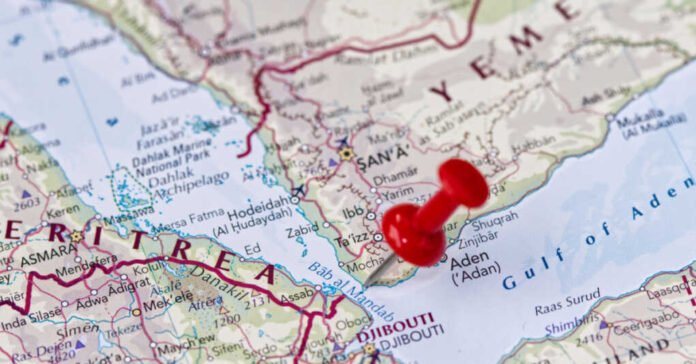
In a dazzling display of firepower, the United States and its allies have once again flexed their muscles, launching a fresh set of attacks on Houthi rebels in Yemen. The strikes, part of an ongoing spectacle of joint operations in the region, come when the Middle East is so wound up it makes a coiled snake look relaxed. Tensions reached a new high on October 7, when Hamas decided to play with matches and set off an anti-Israel sentiment explosion that’s been echoing ever since.
The latest round of attacks on February 3 was the response du jour to the Houthi rebels’ ongoing shenanigans in the bustling Red Sea. These rebels don’t need help understanding the memo about not messing with international shipping. But fear not, the self-appointed global peacekeepers—the United States and its entourage—are here to set things straight.
The Pentagon, always ready with its press release bravado, declared that the militaries of the United States and the UK, with a sprinkling of support from Australia, Bahrain, Canada, Denmark, the Netherlands, and New Zealand, executed a round of “proportionate and necessary” strikes on 36 Houthi targets across 13 locations in Yemen. Translation: They hit stuff that needed hitting.
The Pentagon’s justification for this aerial extravaganza was to “disrupt and degrade” the Houthis’ capabilities to threaten global trade and the lives of innocent mariners. Underground weapons storage facilities, missile systems, launchers, air defense systems, and radars were on the menu. A strategic buffet, if you will.
Now, the Houthis might have gotten the hint after the November attacks on international shipping passed the 30 mark. But no, they kept at it, prompting strikes on January 11 and January 22. The first two rounds were merely appetizers that failed to spoil the rebels’ appetite for maritime mischief.
In its infinite patience, the Pentagon aimed to de-escalate tensions and restore stability in the Red Sea. However, the message to the Houthi leadership was clear: “We will not hesitate to continue to defend lives and the free flow of commerce in one of the world’s most critical waterways in the face of continued threats.” Translation: Play stupid games and win stupid prizes.
However, hold on, there’s more! It was impossible for the Middle East, which has always been a theater of the bizarre, to refrain from throwing another grenade into the mix. On January 27, rebels supported by Iran decided to experiment with drones, which ultimately led to the tragic deaths of three American soldiers stationed in Jordan, as well as a large number of others who were injured. Even though Congress is known for being the voice of reason (note the sarcasm), some members were advocating for a direct attack on Iran. “Target Tehran” was the rallying cry, and those who had missed the memo regarding calibrated replies echoed it.
In a move that surprised no one, President Joe Biden chose a middle ground, opting to carry out attacks on targets linked to Iran in Iraq and Syria. It’s like playing a game of geopolitical whack-a-mole. Meanwhile, the Houthis, with their Persian pals in tow, continue their dance of discord.
In the grand theater of international relations, the latest strikes are just another act in the ongoing saga of power plays and strategic posturing. Whether it’s Houthi rebels or Iran-backed troublemakers, the message is clear: The United States and its allies won’t be sitting idly by, sipping tea while chaos brews. As the dust settles and the echoes of explosions fade, one thing remains certain—this geopolitical soap opera is far from reaching its final episode.







